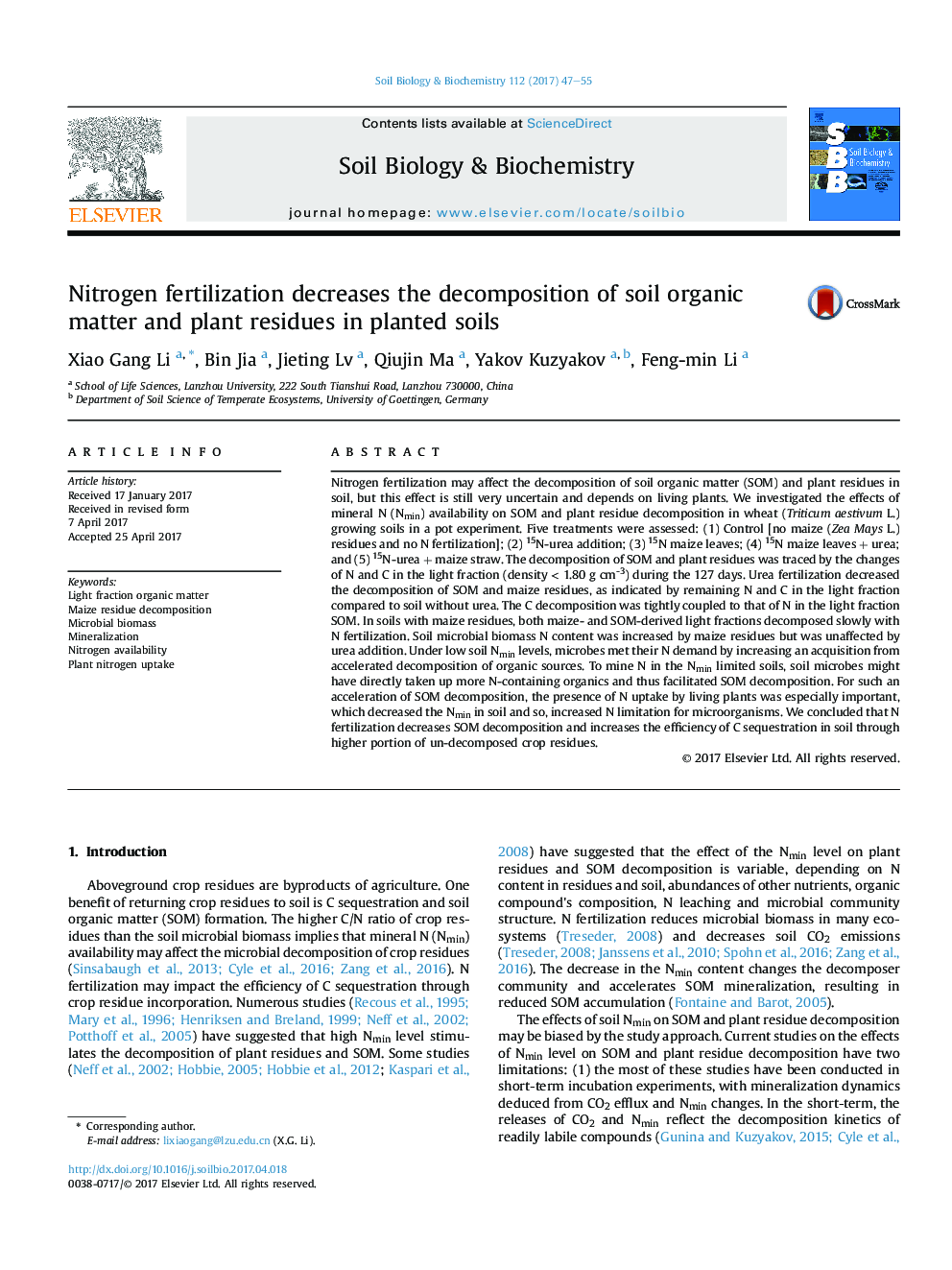| Article ID | Journal | Published Year | Pages | File Type |
|---|---|---|---|---|
| 5516336 | Soil Biology and Biochemistry | 2017 | 9 Pages |
Abstract
Nitrogen fertilization may affect the decomposition of soil organic matter (SOM) and plant residues in soil, but this effect is still very uncertain and depends on living plants. We investigated the effects of mineral N (Nmin) availability on SOM and plant residue decomposition in wheat (Triticum aestivum L.) growing soils in a pot experiment. Five treatments were assessed: (1) Control [no maize (Zea Mays L.) residues and no N fertilization]; (2) 15N-urea addition; (3) 15N maize leaves; (4) 15N maize leaves + urea; and (5) 15N-urea + maize straw. The decomposition of SOM and plant residues was traced by the changes of N and C in the light fraction (density < 1.80 g cm-3) during the 127 days. Urea fertilization decreased the decomposition of SOM and maize residues, as indicated by remaining N and C in the light fraction compared to soil without urea. The C decomposition was tightly coupled to that of N in the light fraction SOM. In soils with maize residues, both maize- and SOM-derived light fractions decomposed slowly with N fertilization. Soil microbial biomass N content was increased by maize residues but was unaffected by urea addition. Under low soil Nmin levels, microbes met their N demand by increasing an acquisition from accelerated decomposition of organic sources. To mine N in the Nmin limited soils, soil microbes might have directly taken up more N-containing organics and thus facilitated SOM decomposition. For such an acceleration of SOM decomposition, the presence of N uptake by living plants was especially important, which decreased the Nmin in soil and so, increased N limitation for microorganisms. We concluded that N fertilization decreases SOM decomposition and increases the efficiency of C sequestration in soil through higher portion of un-decomposed crop residues.
Keywords
Related Topics
Life Sciences
Agricultural and Biological Sciences
Soil Science
Authors
Xiao Gang Li, Bin Jia, Jieting Lv, Qiujin Ma, Yakov Kuzyakov, Feng-min Li,
